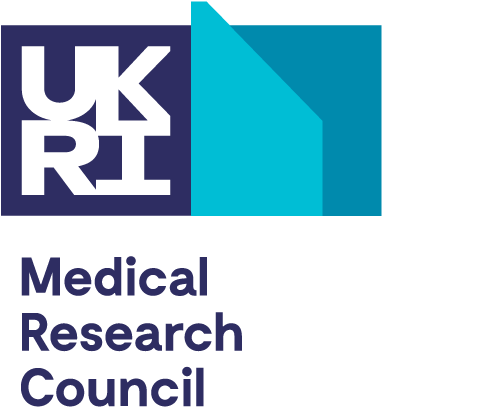The Medicines and Healthcare products Regulatory Agency (MHRA) consultation on proposals for legislative changes for clinical trials closed in March 2022. The MHRA published the government response to the consultation in March 2023.
Know the basics
Knowing whether something falls within the scope of the clinical trials regulations or not, isn’t always easy. You can find legal definitions for ‘clinical trial’ and ‘investigational medicinal product’ in introduction and legal definitions.
Trials within the scope of the clinical trials regulations are called clinical trials of investigational medicinal products (CTIMPs): MHRA tend to refer to them just as ‘clinical trials’.
UK clinical trials regulations apply to trials that test the safety or efficacy of medicinal products, including medicines, vaccines, gene and cell therapies, etc. If you are planning an experimental medicine study, exploring mechanisms of action, the regulations may not apply. Experimental medicine has more on these.
It is a legal requirement to have a sponsor for a CTIMP. In academic trials this is generally the employer of the chief investigator (it’s unlikely to be the funder). Sponsors have legal obligations and corporate systems in place to manage these.
Your trial must get approval from the relevant department in the sponsoring organisation. In Universities this could be the university ‘research governance’, ‘research integrity’, ‘research ethics’ or ‘sponsor’s’ office. In the NHS, it is usually the NHS ‘research and development’ or ‘R and D’ department.
Other approvals include the clinical trial authorisation (CTA) from the MHRA and NHS research ethics committee (REC) approval, obtained as a combined review from a new part of IRAS.
If your trial involves the NHS, or HSC in Northern Ireland, then you will need appropriate approvals or permissions for this. Further guidance is provided in the ‘approvals for clinical trials’ section.
It is a legal requirement to work to the principles of good clinical practice (GCP). If you are conducting a trial with commercial partners and the data will be used to support a marketing authorisation, you are likely to meet the more prescriptive demands of ICH GCP. The HRA has guidance on GCP to get you started.
Identifying and managing the risks associated with your trial is vital for the safety of all participants, staff and the successful completion of your study. You can find guidance on risk management in experimental medicine.
You must register your CTIMP and publish your results.
See the Clinical trials toolkit for guidance on the legal requirements for CTIMPs.
UK clinical trials regulation
Overview of MHRA requirements for UK clinical trials. Certain aspects are highlighted below. MHRA scientific advice for medicines, including clinical trial advice.
Is it a clinical trial of an investigational medicinal product?
Please read:
- MHRA guidance: When a clinical trial authorisation is needed
- MHRA guide to what is a medicinal product (PDF)
- Borderline products: how to tell if your product is a medicine
- Borderline between medical devices and medicinal products in Great Britain if it is unclear whether a product is a medical device or a medicine.
Approvals for clinical trials
Guidance on MHRA and HRA approvals can be found here:
- MHRA guidance on clinical trial applications in the UK
- HRA guidance on HRA approval (for trials led from England or Wales)
- guidance for trials led from Scotland
- guidance for trials led from Northern Ireland.
The combined review service brings together a single CTIMP application for both clinical trial authorisation and research ethics committee opinion obtained from a new part of IRAS.
The MHRA has published common problems with clinical trial applications and guidance on how to avoid them: Common issues identified during clinical trial applications.
Your clinical trial sponsor is responsible for submitting your clinical trial application to the MHRA. (Clinical trial sponsors must register to make submissions to the MHRA.)
There is a legal and ethical need to justify the use of ionising radiation in research protocols. Be aware that the Ionising Radiation (Medical Exposure) Regulations relate to any research exposure, not only to those additional to routine clinical care.
Where research involves the administration of radioactive substances, this must also be approved by the Administration of Radioactive Substances Advisory Committee or ARSAC (your study sponsor obtains ARSAC research approval).
Further information can be found in the HRA guidance for using ionising radiation in research.
Amendments and reporting
If you make changes to your trial after approval, an ‘amendment’, then the MHRA (and others) may need to know about this. For further guidance on amendments, see:
Change of principal investigator at an NHS site (or HSC site in Northern Ireland) or the addition of an NHS or HSC site are no longer substantial amendments see Key changes to UK amendment process.
Your clinical trial sponsor is responsible for submitting substantial amendments to the MHRA.
There are various reporting requirements for clinical trials (for example safety reports, progress reports and end of trial notifications). For further guidance, see HRA managing your approval.
Your clinical trial sponsor is responsible for submitting end of trial notifications and developmental safety update reports (DSURs) to the MHRA.
If you are a clinical trial sponsor MHRA guidance for sponsors on submitting clinical trial safety reports is useful, this includes information on the transition between reporting to EU and UK systems.
Importing and exporting
If you need to import or export clinical trial supplies for your trial, you should contact your clinical trial sponsor.
If you are a clinical trial sponsor you may find the following resources useful:
- MHRA guidance list for import and export the headline page with full list of guidance
- importing IMP to Great Britain from approved countries
- supplying IMP to Northern Ireland.
Trials with sites in the EU
For clinical trials in the EU, your clinical trial sponsor can now make submissions on the Clinical Trials Information System. The EMA is providing training for the new system.
Additional information specific to advanced therapies
MHRA provides guidance on advanced therapy medicinal products regulation and licensing, including how to get Regulatory advice for regenerative medicines.
If human tissues and cells are being used as the starting materials in a medicinal product, the donation, procurement and testing of the cells is covered by the Human Tissue (Quality and Safety for Human Application) Regulations 2007 or ‘Q&S Regulations’. In the UK, the Human Tissue Authority (HTA) is the regulator responsible for licensing establishments under the ‘Q&S Regulations’.
HTA human application pages provide information on the HTA licensing requirements for those using human tissues and cells as the starting materials for an advanced therapy medicinal product (ATMP).
If you will be deriving human embryonic stem cells or human embryonic stem cell lines to use as the starting material for an ATMP, please read joint guidance from the HTA, HFEA and MHRA.
Ethical approval
Gene Therapy Advisory Committee (GTAC) NHS RECs provide ethical review of research involving ATMPs in the UK.
ATMPs include the following types of product:
- gene therapy medicinal products
- somatic cell therapy medicinal products
- tissue engineered products
The specially flagged GTAC NHS RECs have responsibility for providing ethical review for studies involving the delivery of synthetic or recombinant nucleic acids into humans. The remit of GTAC is outlined in the standard operation procedure (SOP) for REC, annex H (PDF, 2.7MB) (starts at page 269 of the SOP).
GTAC also review non-CTIMP studies in gene therapy to maintain a comprehensive oversight of this field of research. This might apply, for example, to non-interventional follow-up studies involving patients treated with gene therapy.
Tissue Engineered Products (TEPs)
Therapeutic trials of tissue engineered products which are presented as having a possible pharmaceutical function are subject to the Clinical Trial Regulations and must be authorised by the MHRA.
Tissue engineered products contain human (or animal) cells or tissues, at least some of which are viable. They may also contain additional substances for example, bio-molecules, scaffolds, matrices etc. If no viable cells or tissues are contained within the product, and the product is not thought to act principally by pharmaceutical, immunological or metabolic action, the product does not fall under the definition of a tissue engineered product for the purposes of the Clinical Trial Regulations.
Tissues are considered ‘engineered’ if they:
- either have been subject to substantial manipulation so that biological characteristics, physiological functions or structural properties relevant for the intended regeneration, repair or replacement are achieved
- or they are not intended to be used for the same essential function or functions in the recipient as the donor
More information on what trials are covered by these regulations and detailed guidance on their application is available from the MHRA and European Medicines Agency.
Stem cells or stem cell lines
Trials involving the therapeutic use of stem cells or stem cell lines will require approval by the MHRA and must be conducted in line with the Clinical Trial Regulations, if they are being presented as exerting principally a pharmacological, immunological or metabolic action.
In addition clinical trials of novel stem cell therapies must also be reviewed by Gene Therapy Advisory Committee (GTAC).
Trials involving well established autologous stem cell therapies, which do not involve genetically modified or manipulated cells (for example, bone marrow transplantation) can be reviewed by any appropriate REC.
Information around advanced therapies in the EU can be found on the EMA website.


